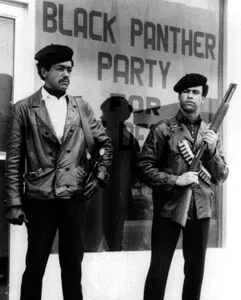What does decolonization of Hawaii, and the US look like? From one Native Hawaiian's perspective (me)
The US military is destroying our islands along with the 12 million tourists under foreign billionaire-owned tourism. Too many Americans are buying up our lands forcing us out by jacking home prices to $1.5 million etc.
But the solution in places like Hawaii, North America is not as simple as everyone who is white or non-indigenous simply leaving.
If the people in Hawaii & North America could repair the inequities with the indigenous people there, respect treaties, allow indigenous and ethnic minorities to exist as equal yet different - the way Vietnam, China have 50+ ethnic minorities who co-exist, allow them to speak languages, don't mass-arrest imjpoverish, etc - then everyone would not need to leave.
If the colonizer-mindset people in Hawaii leave and go to N America, that pushes the problem to Native Americans. If they go to Europe, at least you don't have re-settler colonialism.
When the French colonizers were defeated and kicked out of Vietnam, they were < 5% of the population, had clearly delineated 'us and them' lines, and so decolonization was more straightforward. Most French chose to leave Vietnam, because they were there to extract resources and labor from their 'coolies' and when they couldn't anymore, they went back to Europe.
At the same time, all people of French/white heritage were not required to leave Vietnam after the dismantling of colonial yt supremacist rule.
As an example, my Vietnamese friend Luna Oi has a white American husband in Vietnam, and he is not required to 'go back to America' because he's white. He simply has to follow the rules of Vietnam, its socialist anti-imperialist country, and co-exist peacefully, and it is fine.
Vietnam is 98% indigenous.
Bolivia is ~60% identifying as indigenous, with a unique history, but they have had great successes with their indigenous-led socialist plurinational - meaning many language, many peoples, coexisting within one state - in the Western sense.
They do not require the 40% white/non-indigenous identifying people to leave Bolivia and go back to Spain, Europe, US, etc. but over time, they will need to learn to co-exist in actual equality with the indigenous.
The US is 98% identifying non-indigenous, with ~20-30% non-white identifying.
The US is the worlds' largest European settler colony by far with 330 million people, and the worlds' capitalist superpower that dwarfs and puppeteers its parent Europe itself.
The process of undoing colonization, and healing the broken people and ways (including indigenous and non-white people who have had our ways and languages severely harmed by colonization) will not look identifical to either Bolivia or Vietnam, and will be unprecedented in human history - but we can learn from each of these struggles.
Education, listening to the marginalized, indigenous etc. and implementing that education in concrete ways is certainly an important part of the process. Which is why the US is banning CRT, anything that makes white people 'uncomfortable' from schools. Because it would indeed be the undoing of the US over time.
Long story short - it will be a long story and there is no easy shortcut out of it, lol.
If you appreciated this thread, consider helping this Native Hawaiian and family keep doing this educational / decolonizational work with ko-fi https://ko-fi.com/silverspook
Or consider becoming a Patreon patron!
https://www.patreon.com/neofeud
